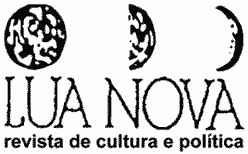Resumo em Português:
Este artigo tem por objetivo investigar diferentes modos de entender as relações que os atores cívicos estabelecem com os media de massa, a fim de configurar a política pública e promover a comunicação com amplas audiências. Para tanto, exploramos dois modelos: um, derivado das teorias de mobilização de recursos e da mobilização política, e outro decorrente das teorias de identidade coletiva e do reconhecimento. Examinamos as premissas desses modelos e algumas das contribuições e lacunas teóricas que apresentam para tratar a influência que os atores coletivos cívicos podem exercer, por meio da comunicação de massa, nas esferas políticas e civil. O objetivo não é advogar a superação de um paradigma por outro, mas, ao invés disso, apontar que um modelo integrado permite articular as arenas informais da sociedade civil com as arenas formais do sistema político. Permite, também, fazer importantes distinções entre diversas formas de comunicação, tais como a expressão estética, a barganha e a argumentação, as quais apresentam lógicas, efeitos e critérios de sucesso distintos.
Resumo em Inglês:
The aim of this paper is to investigate different ways of understanding the relationship that civil society actors establish with the mass media, in order to shape public policies and to communicate with broad audiences. Therefore, we explore two models - one derived from the theories of resources mobilization and political mobilization, and the other derived from the theories of collective identity and recognition. We examine the premises and some theoretical contributions and weaknesses of these models to approach the influence that collective civic actors may exert on the political and civic spheres, through mass media communication. The objective is not to argue that one model should overcome the other, but rather to point out that an integrated model allows for the articulation between the informal arenas of civil society and the formal domains of the political system. It also helps one to distinguish among different forms of communication - such as aesthetic expression, bargain and argumentation, which present different logics, effects and criteria of success.
